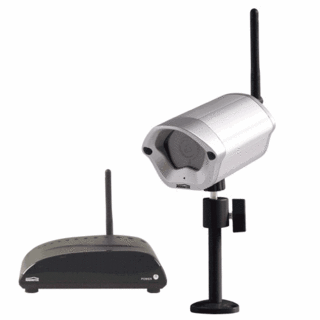Transmeta will add a new antivirus technology standard to its next round of low-power chips, the company said Monday
Published:
21 May 2004 y., Friday
The Santa Clara, Calif.-based concern said it has agreed to work with Microsoft (Quote, Chart) on the software giant's "No Execute" (commonly known as "NX") technology, a security feature that is a combination of hardware and Microsoft's Execution Protection software.
The companies said the combination reduces memory buffer overruns that many hackers exploit to insert malicious code into Windows such as the MS Blaster, Code Red, and recent Sasser worms.
Microsoft has been planning to ship the software support technologies as part of its forthcoming Windows XP Service Pack 2 (SP2) and has worked with other chipmakers on support for the new security features. Intel said it would include NX in its Pentium 4 "Prescott" later this year. AMD (Quote, Chart) already has the technology as a part of its Athlon 64 and Opteron processors.
Transmeta said its hardware is scheduled to ship with NX in mid-year 2004 with its new TM8000-series "Efficeon" processors.
NX uses x86-based architecture CPUs to mark all memory locations in an application as non-executable unless the location explicitly contains executable code. This way, when an attacking worm or virus inserts program code into a portion of memory marked for data only, it cannot be run.
While buffer overruns also plague Unix and Linux environments, Transmeta said it is working with Microsoft first. The company that used to employ Linux founder Linus Torvalds said for Linux to take advantage of NX would require a kernel upgrade.
Šaltinis:
nl.internet.com
Copying, publishing, announcing any information from the News.lt portal without written permission of News.lt editorial office is prohibited.
The most popular articles
Software company announced new structure_ of it_s business.
more »
 Just a few weeks ago, the world's tiniest video camera was as small as a grain of rice. Today, the world's NanoEst camera is even smaller.
more »
Just a few weeks ago, the world's tiniest video camera was as small as a grain of rice. Today, the world's NanoEst camera is even smaller.
more »
 During the experiment two research groups managed to overcome a symbolic 100 TB/s optical fiber data transmission speed limit.
more »
During the experiment two research groups managed to overcome a symbolic 100 TB/s optical fiber data transmission speed limit.
more »
 Apple’s long–awaited online storage service for iTunes could be named iCloud, if only rumours are to be believed.
more »
Apple’s long–awaited online storage service for iTunes could be named iCloud, if only rumours are to be believed.
more »
 The founders of video-sharing site YouTube have bought bookmarking service Delicious from Yahoo.
more »
The founders of video-sharing site YouTube have bought bookmarking service Delicious from Yahoo.
more »
 The successful raid by hackers on Sony’s PlayStation Network is already being ranked among the biggest data thefts of all time.
more »
The successful raid by hackers on Sony’s PlayStation Network is already being ranked among the biggest data thefts of all time.
more »
 Apple has denied that its iPhones and 3G iPads have been secretly recording their owners' movements.
more »
Apple has denied that its iPhones and 3G iPads have been secretly recording their owners' movements.
more »
 Customers who have waited nearly 10 months for the white version of the iPhone 4 won’t have to wait much longer. The Great White iPhone 4 is finally here.
more »
Customers who have waited nearly 10 months for the white version of the iPhone 4 won’t have to wait much longer. The Great White iPhone 4 is finally here.
more »
 Researchers at Georgia Tech University are teaching a robot the basics of dialogue. Named "Simon", the robot has already been taught how to attract a person's attention but eventually, it's hoped he'll be able to interact and converse with humans in daily life.
more »
Researchers at Georgia Tech University are teaching a robot the basics of dialogue. Named "Simon", the robot has already been taught how to attract a person's attention but eventually, it's hoped he'll be able to interact and converse with humans in daily life.
more »
 3D? Terribly lame when it's tossed into devices as a bullet point feature. Trimensional for iPhone takes a picture of your face and maps your mug in a 3D model.
more »
3D? Terribly lame when it's tossed into devices as a bullet point feature. Trimensional for iPhone takes a picture of your face and maps your mug in a 3D model.
more »
 The European Union is to investigate whether internet service providers (ISPs) are providing fair access to online services.
more »
The European Union is to investigate whether internet service providers (ISPs) are providing fair access to online services.
more »